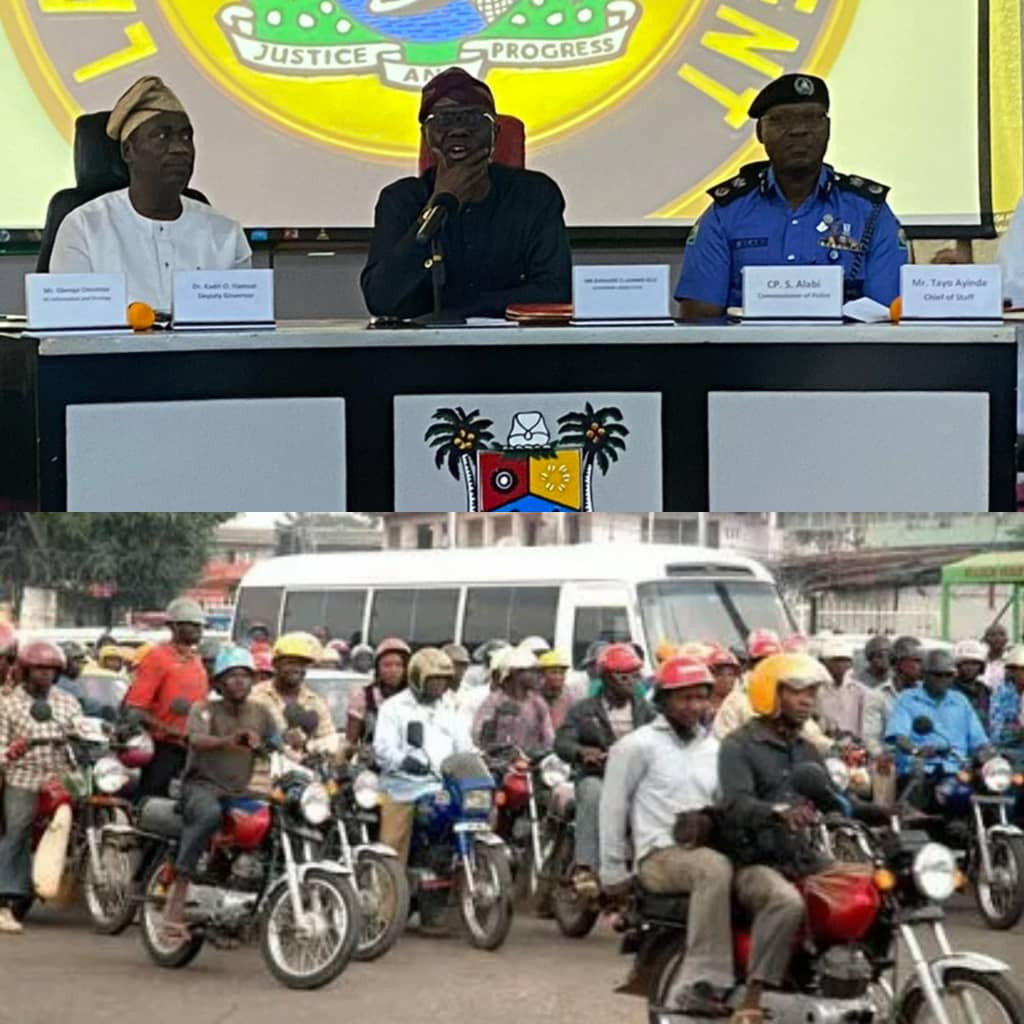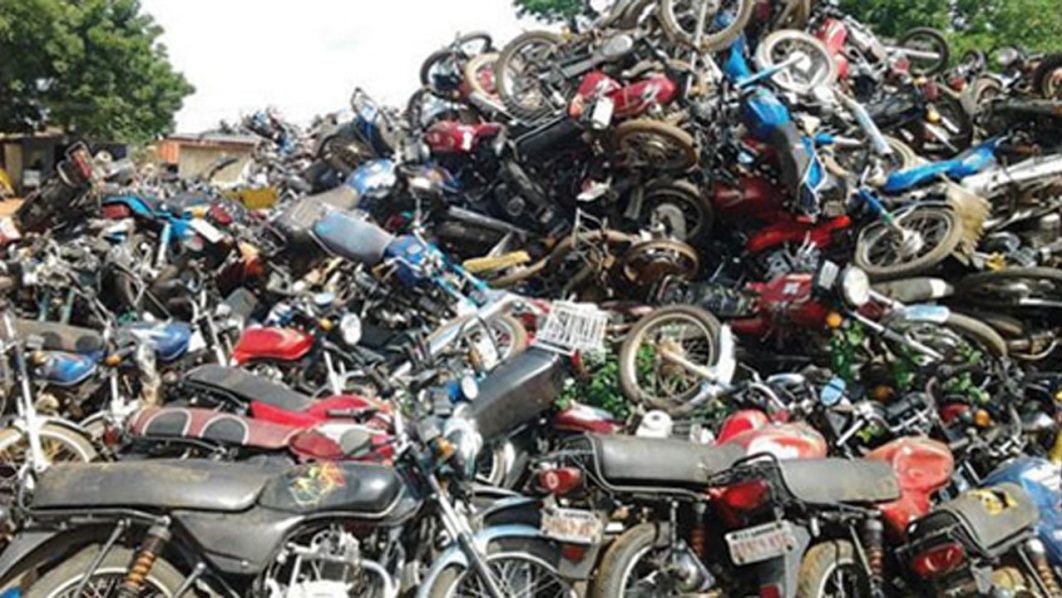Lagos, the central city of diversity, where everyone is in a hurry or busy trying to met up with everything and anything.
In this type of environment, the best fit transportation has been motorcycles ‘okada’.
If not for anything the city is known for terrible traffic and poor transport network. For many years this has been what Lagosian have been used to. Because of the hustle and bustle of the city, beating traffic and manage the situation is necessary, so why not do Okada?
Motorcycles have become popular as they know how to navigate traffic and quickly transport passengers to their destinations.
However, On Wednesday, May 18, 2021, the Lagos State Governor again announced a ban on commercial motorcycles, also known as Okada in six local government areas within the state.
Photo Source: Lagos Television
The Governor of the state described the ban as total and indefinite in the affected areas which includes Ikeja, Surulere, Eti-Osa, Lagos Mainland, Lagos Island, and Apapa. In his statement, he also added that this was just the beginning as there was a plan for the ban to be extended to other areas of the state. The government claims that the ban was born out of security and safety concerns.
READ MORE: Group Says Lagos Okada Ban, Destruction is Targeted At Northerners
The use of motorcycle has been ban several times by the Lagos state government; precisely five times. This ban has been a reoccurring issue in Lagos state.
Back dating to the previous ban;
In 2007, former governor of Lagos state, Bola Tinubu banned commercial motorcyclists from operating in the state. However, this didn’t stand the test of time. His successor, Babatunde Fashola, also banned then in March 2012.
In the same vein Akinwunmi Ambode who succeeded Fashola, ban commercial motorcyclists from operating in the state in 2017.
Despite this ban by the government, severally the use of bikes in the state has not been effective, as ‘Okada riders’ continue to ply the roads expressly.
Now, the Lagos State Environmental and Special Offences Enforcement Unit or the Task Force, said it will intensify the crushing of all seized motorcycles.
The Good
Although, many Lagosian she this law as tortur, it is not. The use of motorcycles has been a source of so many accidents in the city. In an attempt to beat traffic riders pass through almost impossible route, with what seems like little regards for their lives or that of the passengers.
For many, traffic laws do not exist and the result is usually fatal. According to the Lagos State Government, motorcycles and tricycles were responsible for 10,000 accidents and 600 deaths between 2016 and 2019. It’s hard to tell how accurate the figures are—the National Bureau of Statistics (NBS) estimates that each year, there are just 10,000 road accidents in the whole of Nigeria.
The placement of the ban is to ensure safety. It might also be a necessary evil to catapult Lagos into the next phase of its development.
The Bad
Arguably, there is also a harsh reality to this decision by the Lagos state government. There happen to be an underlying problem which resulted to the frequent use of motorbikes in the first place. Take for instance mobility. There seem to be no alternative for inner-city/road travels. And also the big buses and ferries cannot embark on the quick trips usually handled by motorcycles.
Economically, the ban has already led to the increase of transport fare as buses take advantage of this monopoly. Now, people would be forced to spend a higher portion of their already lean disposable income on bus fares.
There also happened to be scarcity of buses as the population of those taking buses increase, most times people have to wait on long cues under scorching sun, hoping to get a ride.
Sometimes they have to trek to get to their destination due to the increase demand of buses.
In addition to this the rate of unemployment has also risen as may drivers have become unemployed without any alternative source of income. Many Okada riders, however still stubbornly operate as they have to survive no matter the consequences.
In response to these complaints the Lagos state governor Sanwo-Olu announced the launch of 14 commercial boats and deployed a fleet of 65 buses across new routes to expand transport options.


